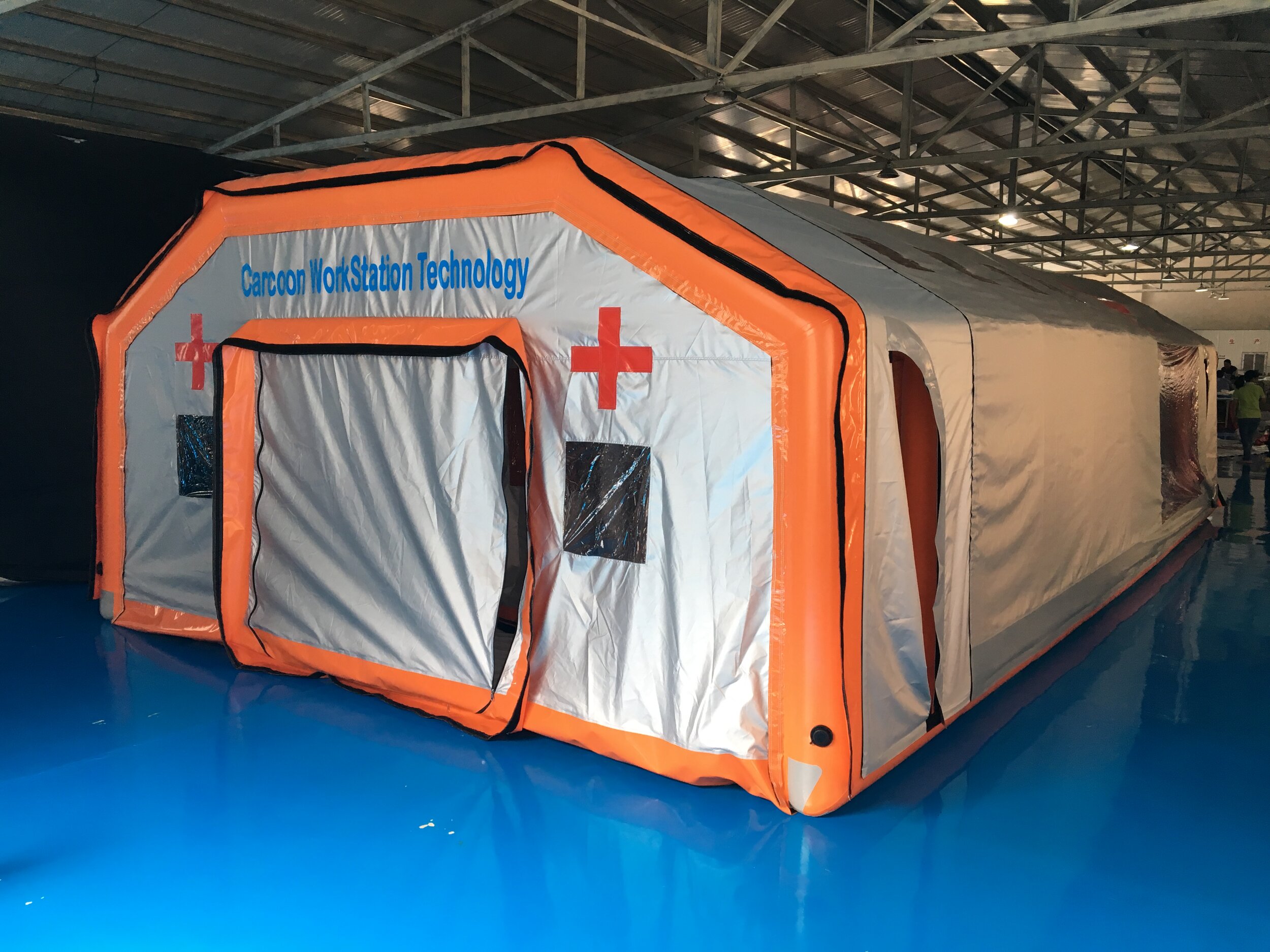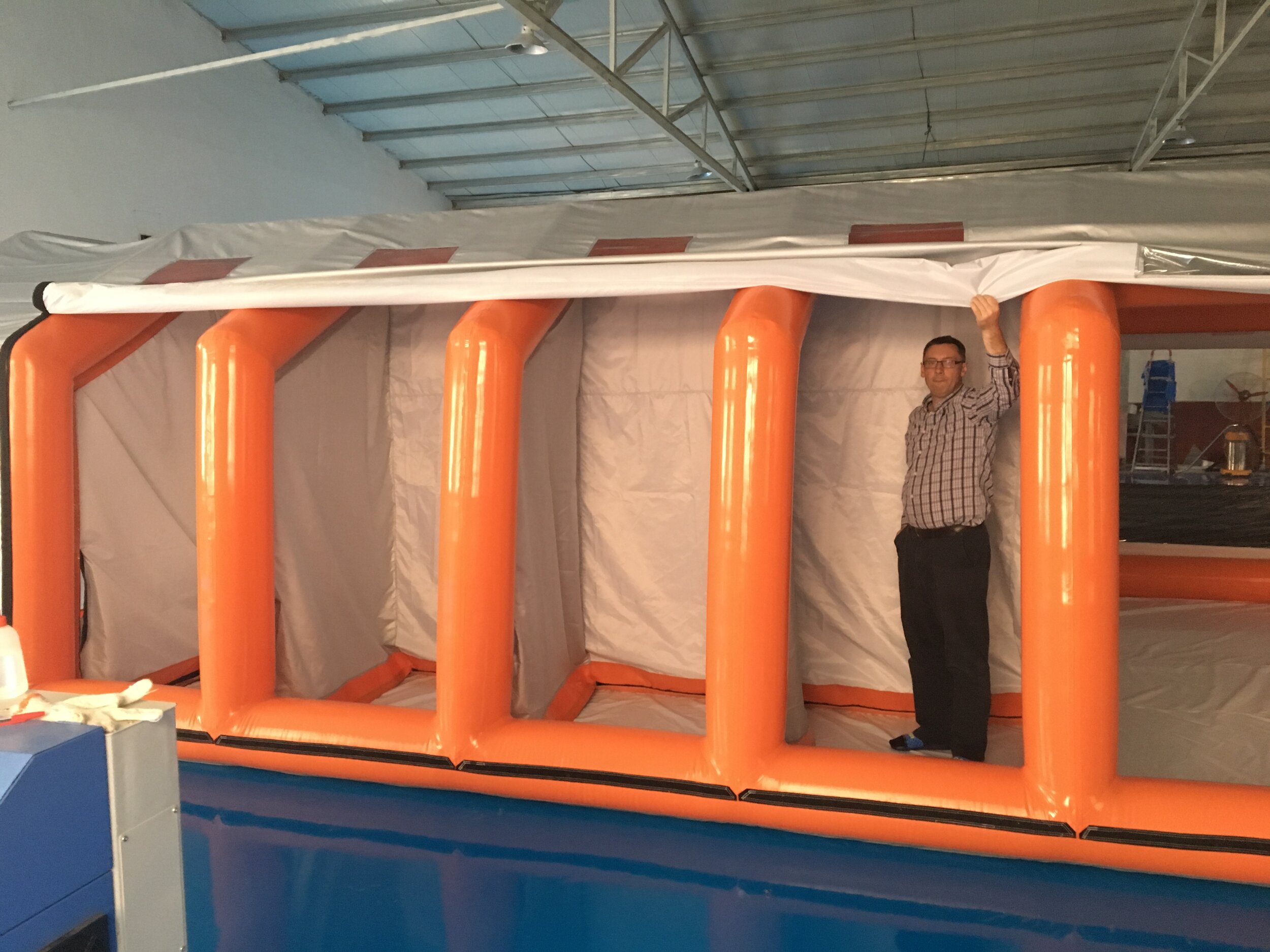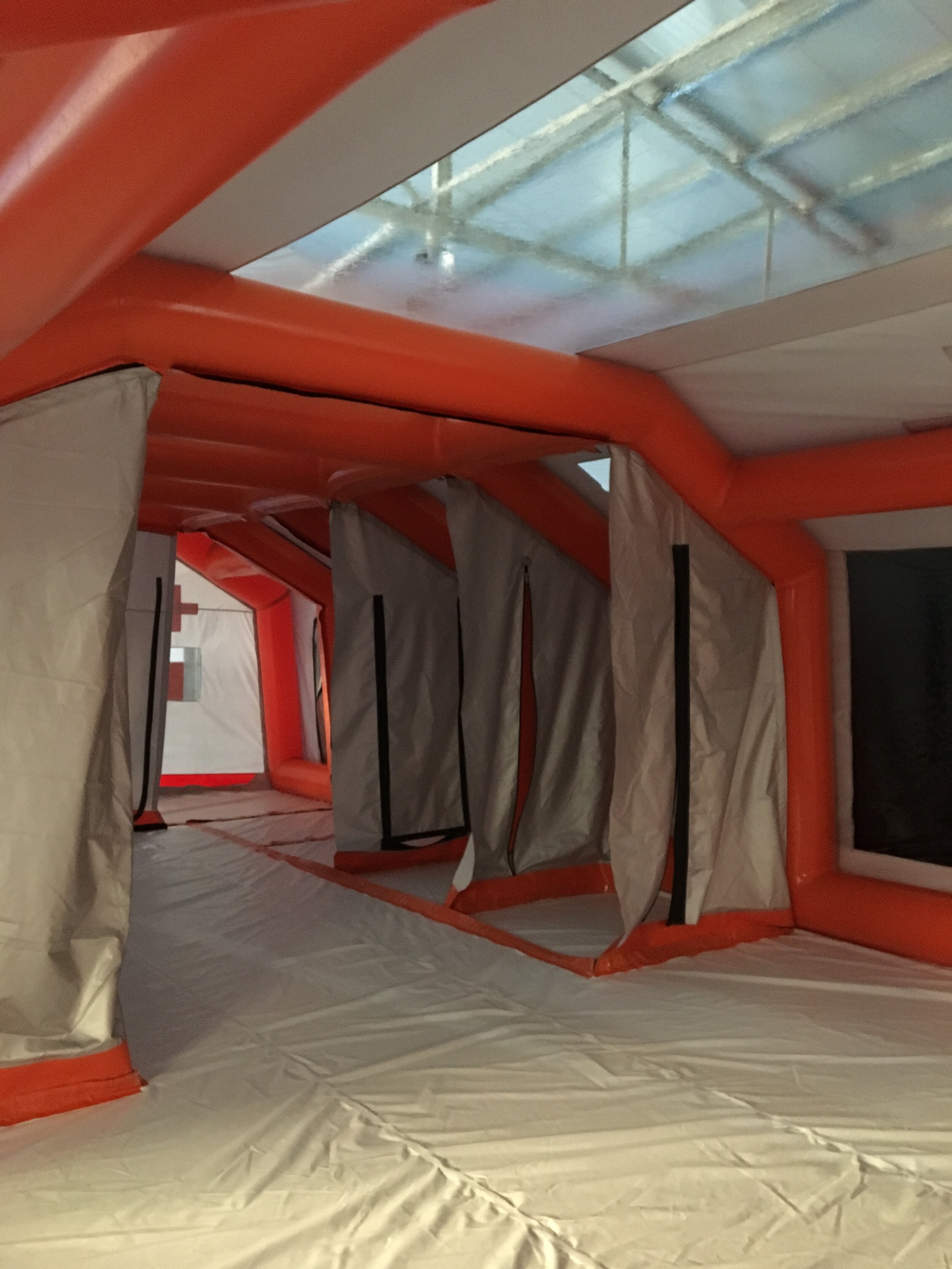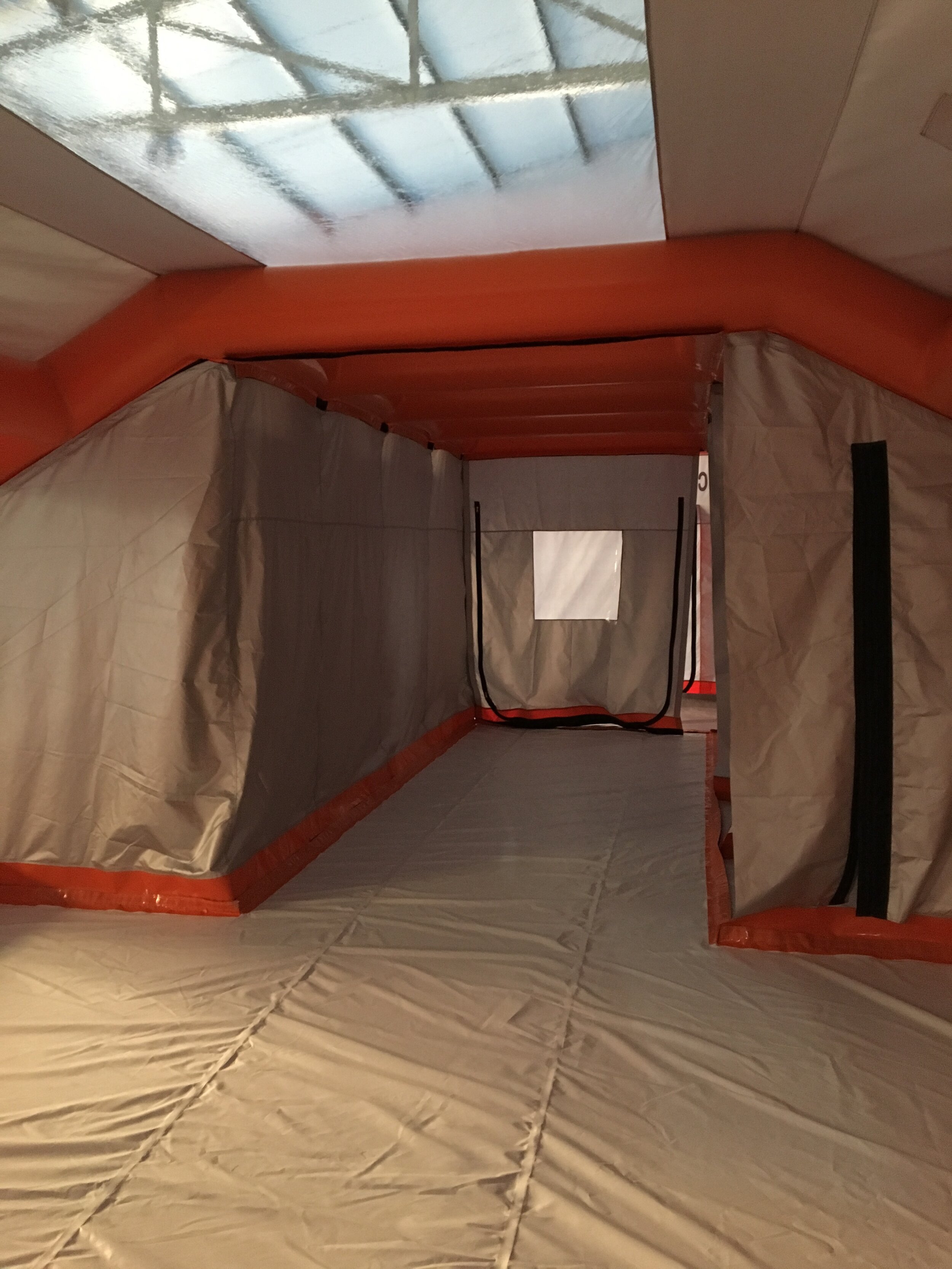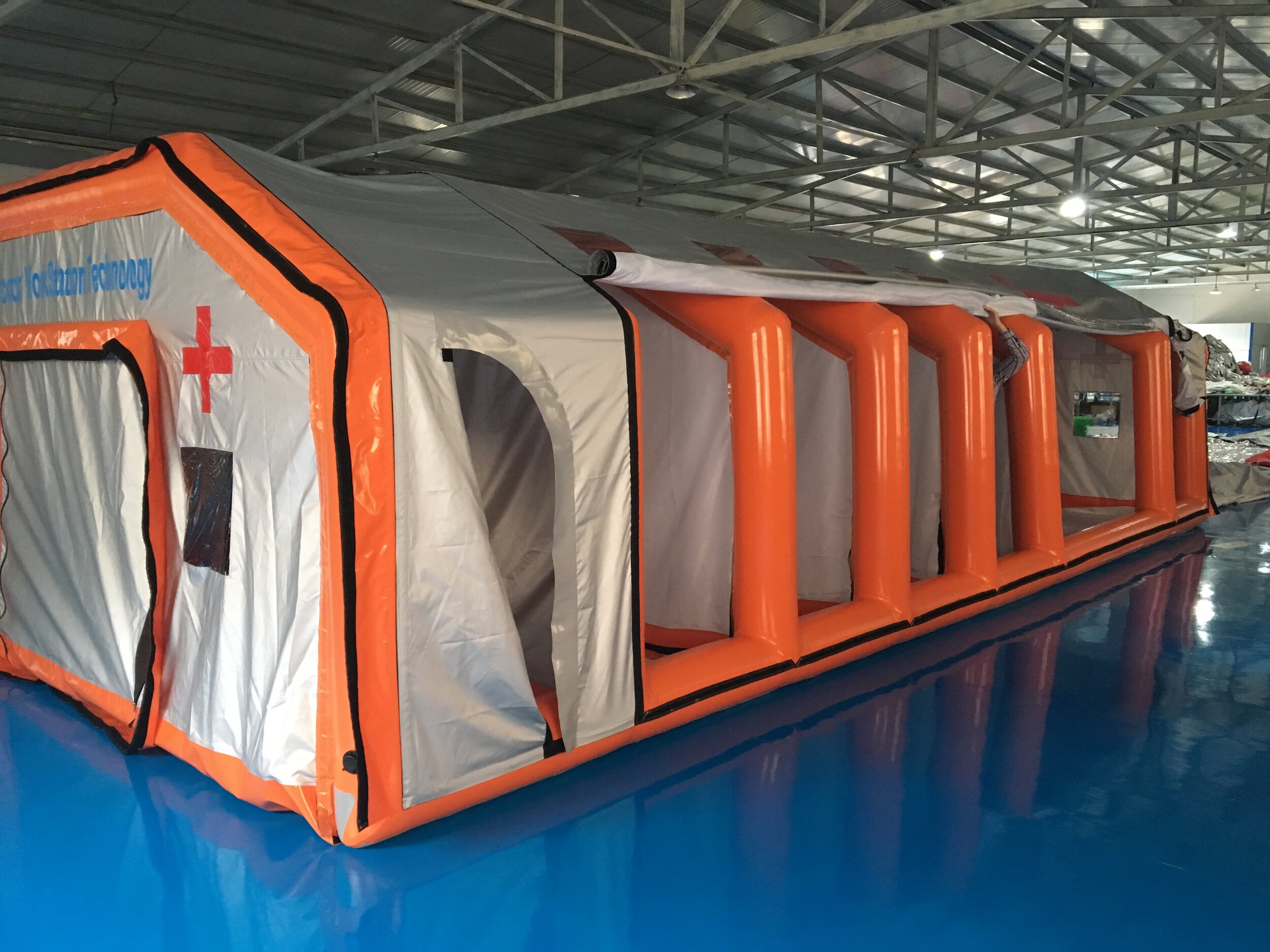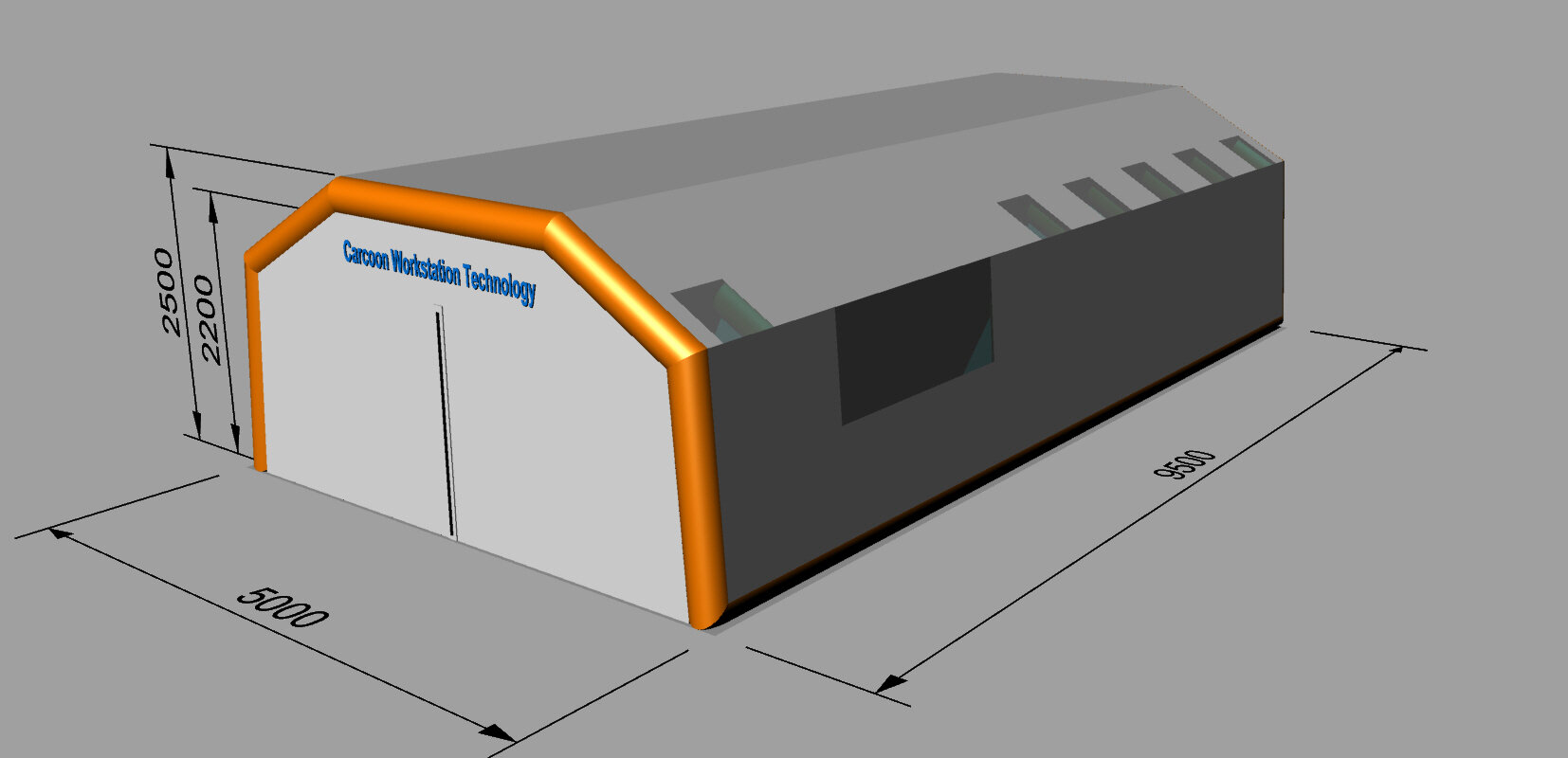PORTABLE DECONTAMINATION CHAMBER
The Decon Project was initiated by the UK MOD, post 9/11. The brief was to develop a rapid decontamination unit that could be set up within minutes of a terrorist attack, such as a ‘dirty bomb’. The unit needed to be light enough to be deployed quickly and small enough to be carried in emergency vehicles and used where large crowds of people gather, such as stadiums, concert arenas, etc. In the event of a medical crisis, it is absolutely essential to prevent everyone in the vicinity from leaving the location. Even if two or three people left without first being decontaminated, the result could be disastrous for the wider community.
The DECONTAMINATION CHAMBER is thirty feet (30’) long and twelve feet (12’) wide. Multiple units can easily be daisy-chained together, forming a barrier around the site of the incident. Each Decontamination Chamber provides a private space for the individual to remove all clothing, sealing them inside a plastic bag for safe incineration or decontamination. The faster a potential victim can dispose of contaminated clothing and then wash and dry themselves, the safer they will be and the risk of contamination or infection will be greatly reduced. Once stripped, the individual can then move within the Decontamination Chamber into the next chamber to wash and shower, freeing the first chamber for the next person to begin the decontamination process. Once washed and showered, the person would then move into the next chamber to dry. Finally, the person would enter the last private chamber to dress in the obligatory white suit before entering the clean main chamber to be quickly checked by a medic/doctor. If the person is judged clean and virus-free, they are then given a pass to exit the restricted area. Each unit is divided into two identical sections so more than one person can be processed at a time.
With this system in place, the public will feel much safer. It is also a fantastic opportunity for political public relations. It allows local authorities, governments, military and corporations to be proactive instead of reactive in saving lives.

